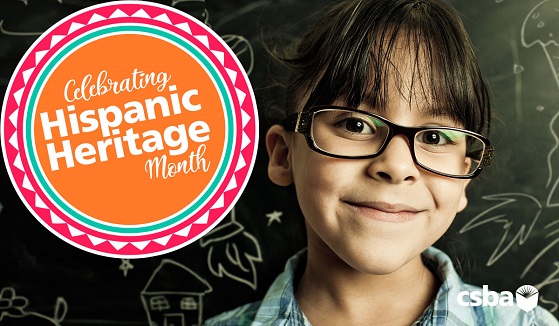National Hispanic Heritage Month presents an opportunity for local educational agencies to evaluate how they engage Hispanic and Latino students and families and, as a result, improve graduation rates and college enrollment
Since its inception at Chabot Community College in Hayward, California, in 1981, the Puente Project has become a nationally recognized program that has improved the college-going rate of tens of thousands of educationally underrepresented students throughout the state. Launched as a grassroots initiative to address the low rate of academic achievement among Mexican American and Latino students, founders Felix Galaviz and Patricia McGrath found a common pattern across 2,000 student transcripts: students were avoiding academic counseling, students were not enrolling in college-level writing courses, and students were the first in their families to attend college.
The Puente Project — which has expanded to seven middle schools, 36 high schools and 65 community colleges — comprises three parts to address these specific challenges: rigorous language arts instruction, sustained academic counseling, and community leadership development and mentoring. Community college instructors, middle and high school teachers and counselors receive training from Puente staff to implement a program of rigorous instruction, focused academic and social-emotional counseling and community mentorship.
These training programs, co-sponsored by the University of California and the California Community College Chancellor’s Office, have benefited approximately 300,000 students across the state. And they are paying off. UC’s 2020 fall admission class had the highest percentage ever of Latino students, at 36 percent. The university system also increased the number of first-generation, low-income and community college transfer students admitted.
Getting a jump start
In the nearly 50 California secondary schools that have adopted Puente programming, emphasis is placed on ensuring students acquire competency in various genres including autobiography, reflection, research, persuasion, literary analysis, expressive and community-based writing — a breadth of skills that will start them off ahead when they begin higher education-level courses. By the time they graduate, students have created portfolios of their best work.
Children are also taught techniques for collaborative peer review. “Puente’s writing program not only builds language-arts skills, but also teamwork, critical-thinking and problem-solving skills, all of which are key to enabling enrollment at a public or private university,” according to the program’s website.
The program takes a whole child, community-based approach, with teachers, counselors and parents all empowered to work together. For example, a Puente counselor works with a Puente teacher to function as an interdisciplinary team that meets regularly with students both inside and outside the classroom. Puente counselors also work closely with families, providing regular parent workshops throughout the school year.
Research from the National Education Association shows that the more involved families are in their children’s education, the higher a student’s attendance and graduation rates will be.
Family involvement has also been found to increase college enrollment. Research also shows that parent participation increases college enrollment rates, according to studies from the Parent Institute for Quality Education, a California-based program that supports immigrant parents and provides them the skills to be more involved.





